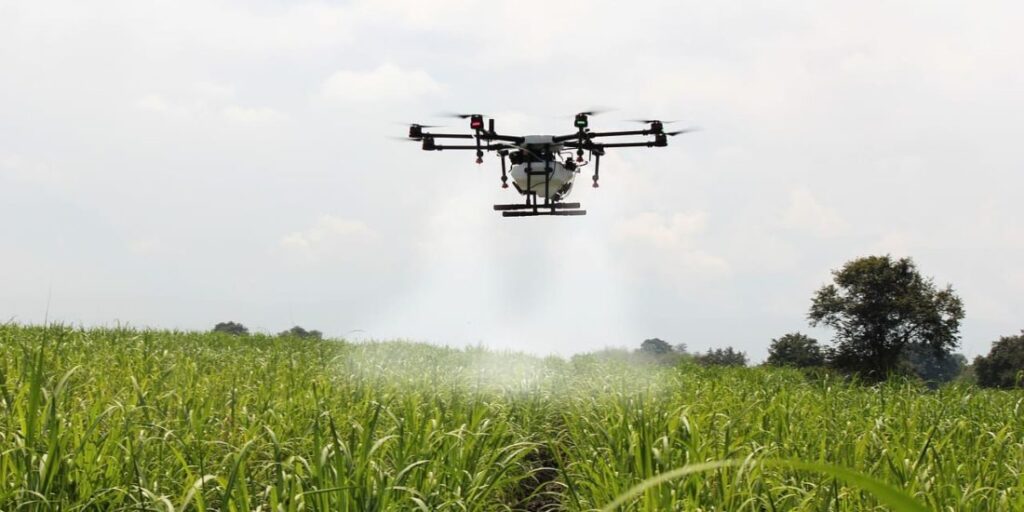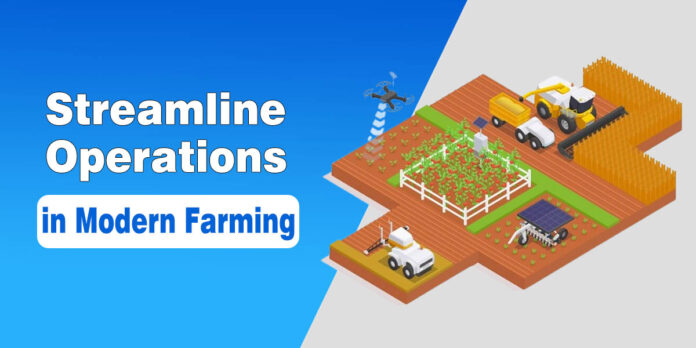In the modern era, farming has been revolutionized but farmers still face many challenges, such as unpredictable weather conditions, short supply of water, etc. For this purpose, they need to streamline their farming methods to produce more food to meet the needs of today’s world.
In this post, I have discussed how farmers can streamline their operations efficiently and effectively in modern farming environments.
1- Wise Use of Technology
The biggest change in farming is the adoption of modern technology, they can employ drones, sensors, GPS, and many other ways to work smartly. Stefan Soloviev pioneered agricultural technology and adopted continuously evolving technology trends to lead the farming industry. Leader farmers adopt a combination of computer systems and other pieces of equipment to reduce human labor.
For instance, drones take pictures of the field to know where the plants are healthy and need help. Sensors have eased the process of sensing how much water and nutrients are needed. These modern tools and technology automation saves the process of farming with less use of pesticides and fertilizers. Some examples of automated farming tools are:
- Greenhouse automation systems
- Smart sensors for data collection
- Robots for harvesting
- Tractors
- Drones for real-time tracking

2- Implementation of Precision Technology
Precision technology refers to using data to make better decisions about their fields and crops. They can identify what the fields need and how they can provide essential nutrients to the field plants. Instead of watering or giving fertilizer to the whole field, farmers can give these essentials to the only plants that need it, as giving fertilizer or water to the whole field can prove toxic. This technology implementation through different software includes:
- Planting and harvesting of fields
- Fertilization of crops
- Feeding animals on farms
- Inspection of farm instruments to maintain them regularly
- Analyze the total consumption of resources.
3- Adopt Crop Rotation Strategy
Crop rotation is a strategy traditional and modern farmers follow to change what they grow in a field for years and years. It keeps the soil healthy and prevents pests. The rotation of crops does not deplete a nutrient in the soil, as it can replenish the nutrient while the crop is rotated. Farmers increase the harvest in this way. For example, if beans are grown in a year, growing corn in the next season helps in replenishing the nutrients to get a better yield.
4- Sustainable Practices are Followed
Sustainable and eco-friendly practices have been the foremost part of modern farming as farmers know that streamlining their operations through sustainable approaches is crucial in protecting their environment and resources.
It does not lead to water and other resource contamination as unsustainable farming practices do. They have reduced chemical fertilizers and switched to organic ones for soil health. Organic farming methods and fertilizers produce healthy food and save money in the long run.
5- Improve Supply Chain Management
A strong supply chain is the important practice to streamline their operation of planting seeds and delivering food to stores. They should use software to plan what they grow and how they sell it to manage inventory. They can also track sales to ensure they have enough products without overproducing.
6- Collaboration and Networking with Other Farmers
The farmers should interact, collaborate and join agricultural networks to share their resources and knowledge. Sharing machinery, exchanging best practices, and buying seeds in bulk save them money and resources and enhance their productivity.
7- Training and Education
Training and education of the farmers is important to keep them updated with the latest innovations in agri technology. It can be done through online courses, farm visits, and workshops to understand technological advancements better. It leads to better crop yields and a more profitable farm.
8- Monitor and Adjust the Operations
Last but not least, it is also crucial to monitor the operations regularly. They should keep track of their work, and activity. They should check the health of crops, review the data about sales, and access the use of resources to improve their agri operations.
What are Some Benefits of Process Improvement in Agriculture?
Process improvement can result in:
- Thorough analysis of processes to find inaccurate and inefficient methods
- Labor storage is revealed
- Supply chain disruptions are analyzed
Conclusion
In modern farming, using the latest tools and methods streamlines farming operations and makes work easier and more effective. Farmers can overcome challenges by adopting these methods to optimize their operations and practices. These farming strategies ensure a bright and productive future for any nation.

